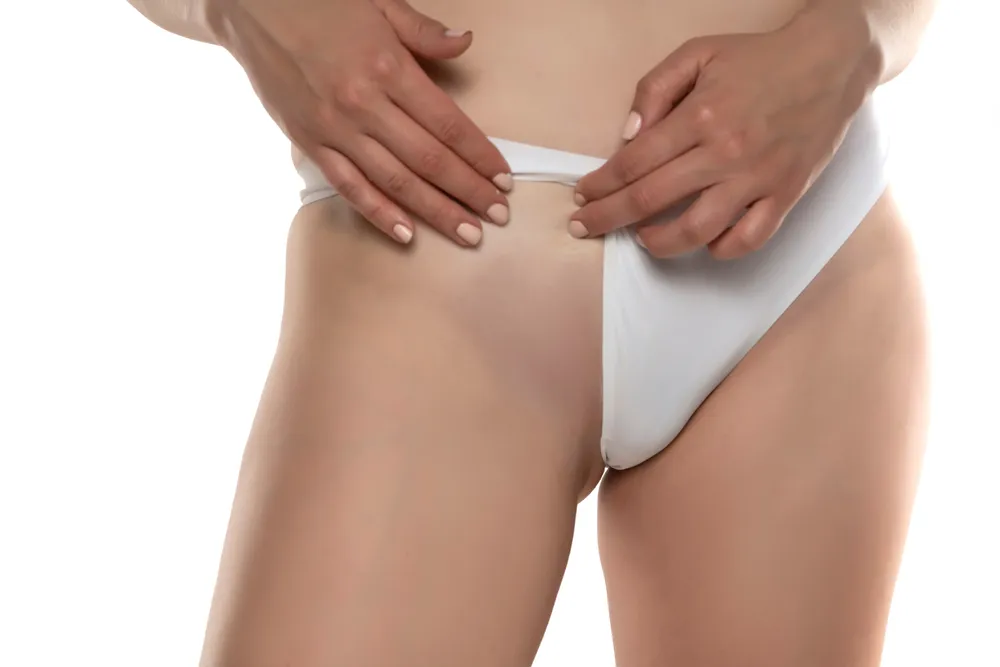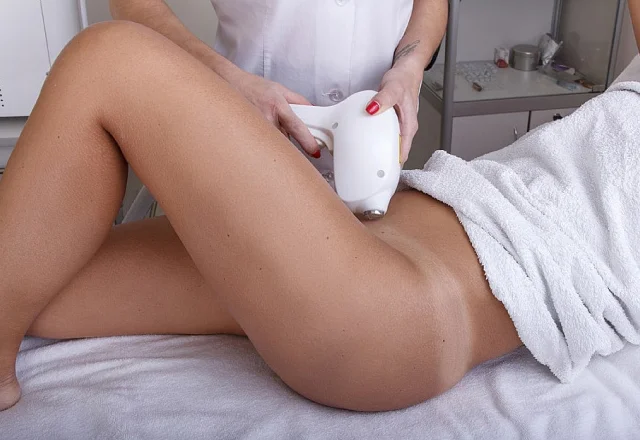Vaginal bleaching is the cosmetic procedure used to lighten the skin surrounding yourvulva. This procedure is not medically approved and it could be dangerous, so you should have good reasons to undergo vaginal bleaching.
What isvaginal bleaching?
Vaginal bleaching, or intimate area lightening, uses products or treatments to lighten the skin in your genital area. Your genital area includes the inner thighs,labia, and surrounding areas. Although you may choose vaginal whitening for a variety of reasons, the most common reasons are personal preferences, social beauty standards, and cultural influences. Due to cultural influences, some women might feel self-conscious about their genital area’s skin tone and choose to lighten it to gain confidence. The skin color changes (as we age) in the private area such as thevagina, scrotum, and anus are completely natural. The vagina includes the clitoris, dark labia, hymen, and urethral opening.

What causes vagina darkening?
Friction
Hormones
Age
PCOS
Moisture
Frequent shaving
What Is the Point ofVaginal Bleaching?
People choose to undergovaginal bleachingto cosmetically reach pinker-looking labia and vulva. The idea is that pinker and lighter genitals appear more vibrant, youthful, and less worn. Your valvar area may become darker over time due to aging, sexual activity, childbirth, clothing, waxing, shaving, swimming, or other causes. Since some people do not prefer skin color variations in the body, a vaginal lightening procedure is often accompanied byanal bleaching.

Is it safe to bleach your private area?
The safety of the vagina bleaching procedure is a topic of concern. The genital area bleaching products and treatments contain potentially harmful ingredients such as hydroquinone, mercury, or corticosteroids. Since the long-term effects of these substances on the delicate genital skin are not well-studied, we’re uncertain of their safety. The potential side effects of vaginal bleaching include:
Skin rashes: You may have an allergic reaction to the ingredients in the bleaching products, resulting in rashes, hives, or even more severe allergic responses.
Skin irritation:The use of harsh chemicals or improper application techniques can lead to skin redness, itching, burning, or soreness.
Scarring:Incorrect or excessive use of bleaching products might cause skin damage, scarring, or uneven pigmentation that could be challenging to reverse. The laser vaginal bleaching process may cause permanent scarring in the intimate area.
Thinning skin:The genital area is already sensitive, and certain bleaching methods might further increase sensitivity, leading to discomfort during sexual activity or other physical sensations.
The side effects of laser-based treatments can include:
Burns
Scarring
Persistent pain or pain during sex
Should you go for vagina whitening?
If after consulting with a doctor and knowing the potential risks of vaginal bleaching you are considering it, you should avoid DIY at-home remedies. Before applying any bleaching product to the entire genital area, perform a patch test on a small area of your skin. Alternatives such as gentle exfoliation, moisturizing, or using natural skin-lightening ingredients such as lemon juice or aloe vera might be safer options.

Vaginal bleaching aftercare
If you’ve done a laser vaginal bleaching, it’s best to know how to care for yourself following the procedure:
Clothing:Wear loose or disposable underwear after treatment to avoid friction.
Cleanliness:Keep the area clean and moisturized with gentle products.
Bathing:Use lukewarm water for washing for 48–72 hours after treatment, and avoid bathing in hot water for the first few days.
Sex:Avoid sexual contact for 3–4 days post-treatment.
Exercise:Avoid strenuous exercise for 48–72 hours.
Conclusion
In conclusion, vaginal bleaching is a practice that should be approached with caution due to several reasons. The process involves the use of chemicals that can lead to skin irritation, burning, and even permanent damage. Furthermore, it promotes unrealistic beauty standards and can negatively impact one's self-esteem. It's important to remember that every individual is unique and that natural variations in skin color are normal and healthy.